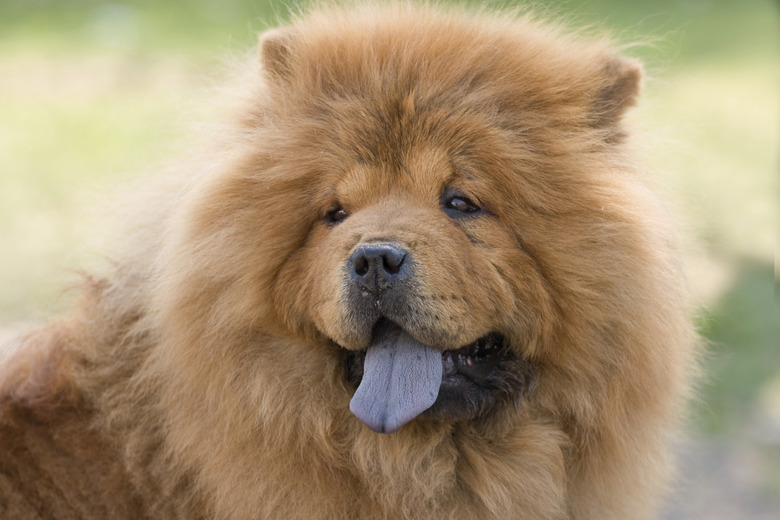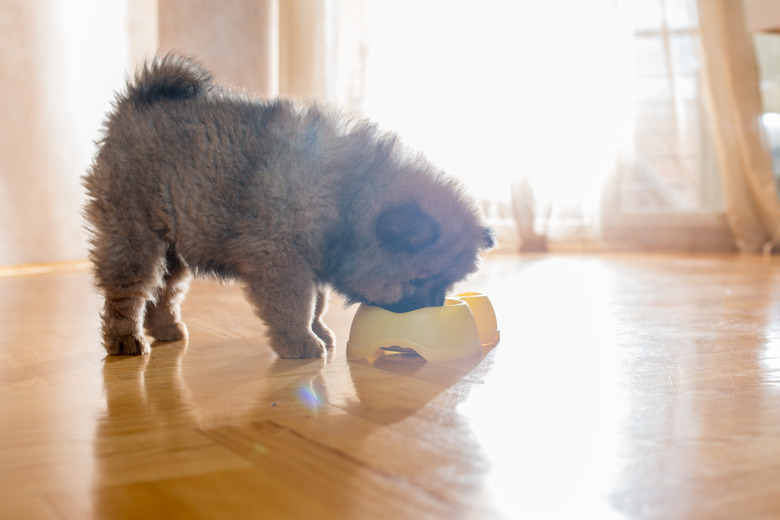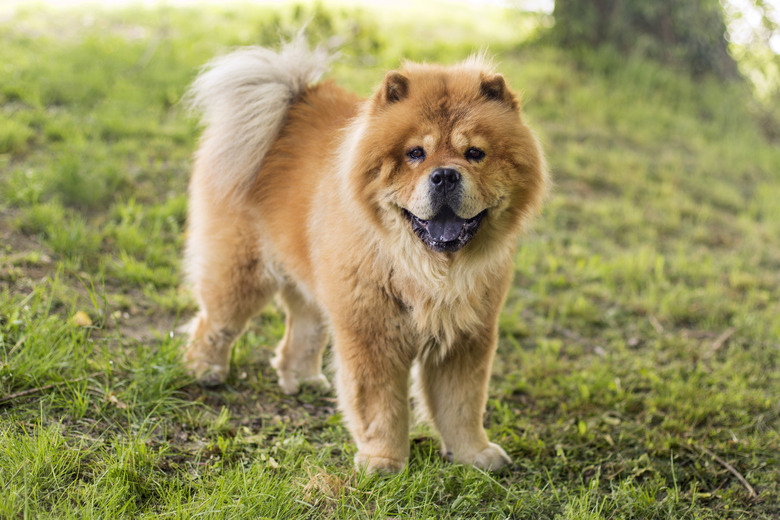Diet Of A Chow Chow
Chow chows have recently become a very popular dog breed and you can recognize one easily by her fluffy coat, lion's-mane ruff, and dark blue-black tongue. The chow chow is one of the oldest breeds and was used as a hunting dog during the Han dynasty dating back to 202 B.C. Sometimes described as cat-like, the breed displays characteristics such as independence and aloofness. This serious and dignified dog needs a healthy, well-balanced diet and finding the best food for your chow chow will help her live a long and happy life.
Chow chow dog food
Chow chow dog food
A healthy chow chow should be fed a high-quality commercial wet or dry dog food as recommended by your veterinarian. Check the label and select a food with a single source of protein as the first ingredient. Many chow chows do well on a low-grain diet. Follow the package instructions to determine how much food your dog should get based on her weight and split that into two meals.
Avoid feeding her table scraps or people food, especially selections that have a high fat content. Be sure to limit treats so that they do not exceed 10 percent of your dog's daily caloric intake. If you are using a lot of treats in training, reduce the size of her meals to account for the extra food. Obesity is a common concern for chow chows and can lead to a decreased quality of life and increase the risk for other health conditions.
Raw diets and homecooked meals for dogs have become increasingly popular; however, the American Kennel Club notes that there is no evidence that these options are better. Chow chows are prone to some medical conditions that may make it difficult to feed commercial food so be sure to consult with your veterinarian to determine the best option for your pet.
Chow chow health and diet
Chow chow health and diet
Chow chows are susceptible to several conditions and health concerns that make it especially important to feed the right diet. Allergies are common and symptoms of chow chow food allergies include itchy skin, paw licking, ear infections, and rubbing the face and muzzle. Always keep an eye out for allergy symptoms, even if you haven't changed food or treats as manufacturers may change the formula without notifying customers. If allergies become a serious concern, the best food for your chow chow may be homecooked meals to eliminate problematic ingredients.
Diabetes occurs more often in chow chows than in many other breeds. A good diet, as recommended by your veterinarian, as well as insulin can manage the condition. Chow chows are also at an increased risk of having insufficient pancreatic digestive hormones. Adding supplemental digestive enzymes to your dog's diet can help to manage this condition.
Bloat is another condition that is fairly common with this breed. This is a life-threatening condition in which the stomach becomes distended and twists, which can block blood supply and food passage. Some things that increase the risk of bloat include eating too fast, overeating, and exercise immediately after eating. Keeping a consistent, twice-a-day feeding schedule can help to decrease the risk of bloat.
Raw and home-cooked meal considerations
Raw and home-cooked meal considerations
If you and your veterinarian decide that cooking for your chow chow at home is preferable to a commercial diet, make sure to get recipes from your veterinarian and follow them exactly. This ensures that your dog is getting all the nutrients and supplements she needs as well as the right calorie count to maintain a healthy weight.
You can also visit BalanceIT.com, a site run by a veterinarian, to create balanced recipes you can cook for your dog. The site also features recipes for a variety of medical conditions, including diabetes, itching, and obesity. You may need approval from your veterinarian to access these recipes.
Some people feed their chow chow a raw diet. A chow chow raw diet may include a variety of raw meats, fruits, vegetables, and dairy products. Don't switch to a raw diet without consulting your vet as it can be harmful to dogs with some medical conditions such as pancreatitis or cancer. Additionally, when handling raw meat, there is an increased chance of you, your family members, or your dog getting sick with food-based pathogens.
References
- American Kennel Club: 11 Reasons Why the Chow Chow Is an Unusual Dog Breed
- American Kennel Club: Cooking For Your Dog: Do's & Don'ts of Homemade Dog Food
- The People's Dispensary for Sick Animals: Chow Chow Breed Information
- Carson Animal Hospital: Choosing a Chow Chow
- American Kennel Club: Chow Chow
- American Kennel Club: Fresh vs. Raw vs. Kibble: What Should You Feed Your Dog?
- BalanceIT.com: AutoBalancer EZ for Vet Patients
- BalanceIT.com: AutoBalancer EZ for Healthy Adult Pets


